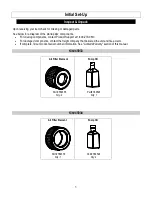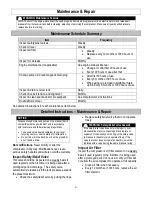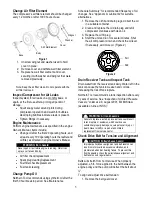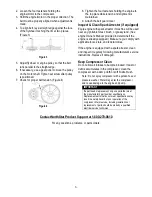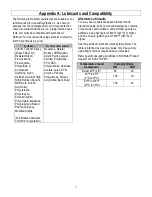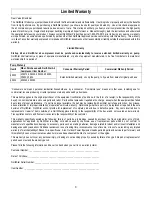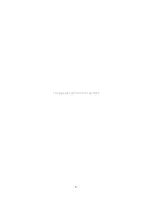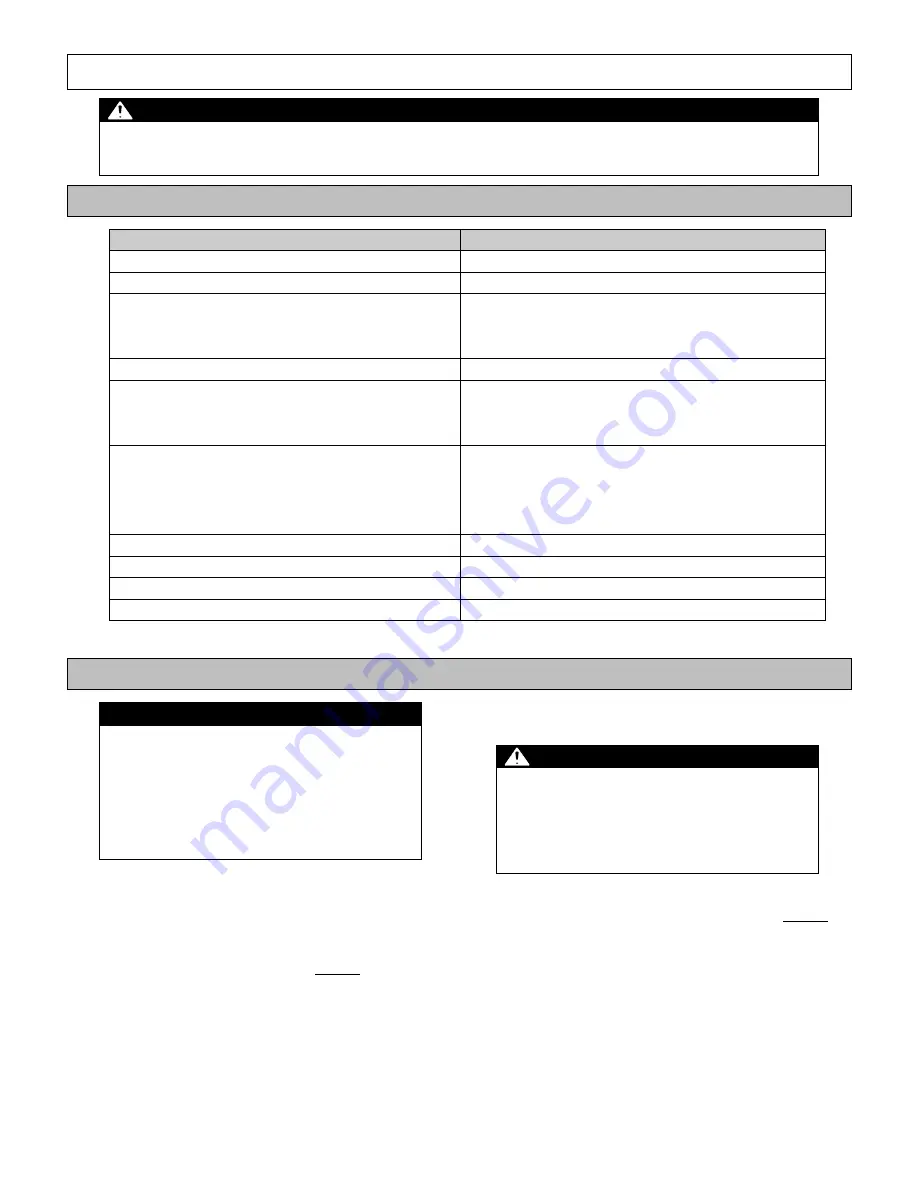
4
Maintenance & Repair
WARNING: Maintenance hazards
ALWAYS shut off the engine, disconnect the spark plug wire from spark plug (power cord on electric motors) and release air
pressure from the receiver tank before cleaning, adjusting, or servicing the compressor. Make sure all guards and shields are
replaced before re-starting.
Maintenance Schedule Summary
Item
Frequency
Inspect safety/relief valves
Weekly
Check oil level
Weekly
Inspect air filter
Weekly
Replace every 12 months or 1000 hours of
use
Inspect for air leaks
Monthly
Engine maintenance (If applicable)
See engine Owner’s Manual
Change oil: after first 20 hours of use
Every 100 hours of use after that
Change pump oil/ Clean magnetic drain plug
After first 50 hours of use
Every 3 months or 500 hours of use
When using oil provided in NorthStar Start-
up Kit: Every 6 months or 1000 hours of use
Inspect & drain receiver tank
Daily
Check drive belt tension and alignment
Monthly
Inspect & clean spark arrestor (if equipped)
See manufacturer’s instructions
Dust/debris removal
Monthly
See detailed instructions for each maintenance item below.
Detailed Instructions – Maintenance & Repair
NOTICE
Dispose of used motor and pump oil in a manner that is
compatible with the environment and in accordance
with local, state, and federal laws and regulations.
Take used oil in a sealed container to your local
recycling center or service station for reclamation.
Do not throw it in the trash, pour it on the ground, or
pour it down a drain.
No modifications.
Never modify or alter the
compressor in any way. Modifications can create
serious safety hazards and will also void the warranty.
Inspect Safety/Relief Valve
This valve should be inspected on a weekly basis if
used regularly or the first time it is being used after a
prolonged period of storage.
The safety valve
automatically releases air if the tank pressure exceeds
the preset maximum.
Check the safety/relief valve by pulling the rings.
Replace safety/relief valve that do not operate
freely.
WARNING: Safety/Relief valve hazards
If the safety/relief valve does not work properly, over-
pressurization may occur causing air tank rupture or
explosion. Occasionally pull the ring on the safety valve
to make sure the safety valve operates freely. If the
valve is stuck or does not operate smoothly, it must be
replaced with a valve having the same pressure rating.
Inspect Air Filter
Inspect the compressor’s air filter element on a weekly
basis if used regularly or the first time it is being used
after a prolonged period of no use.
A dirty air filter will
not allow the air compressor to operate at full capacity.
Clean air filter when necessary.
Every 12 months or 1000 hours, replace the air
filter element.



